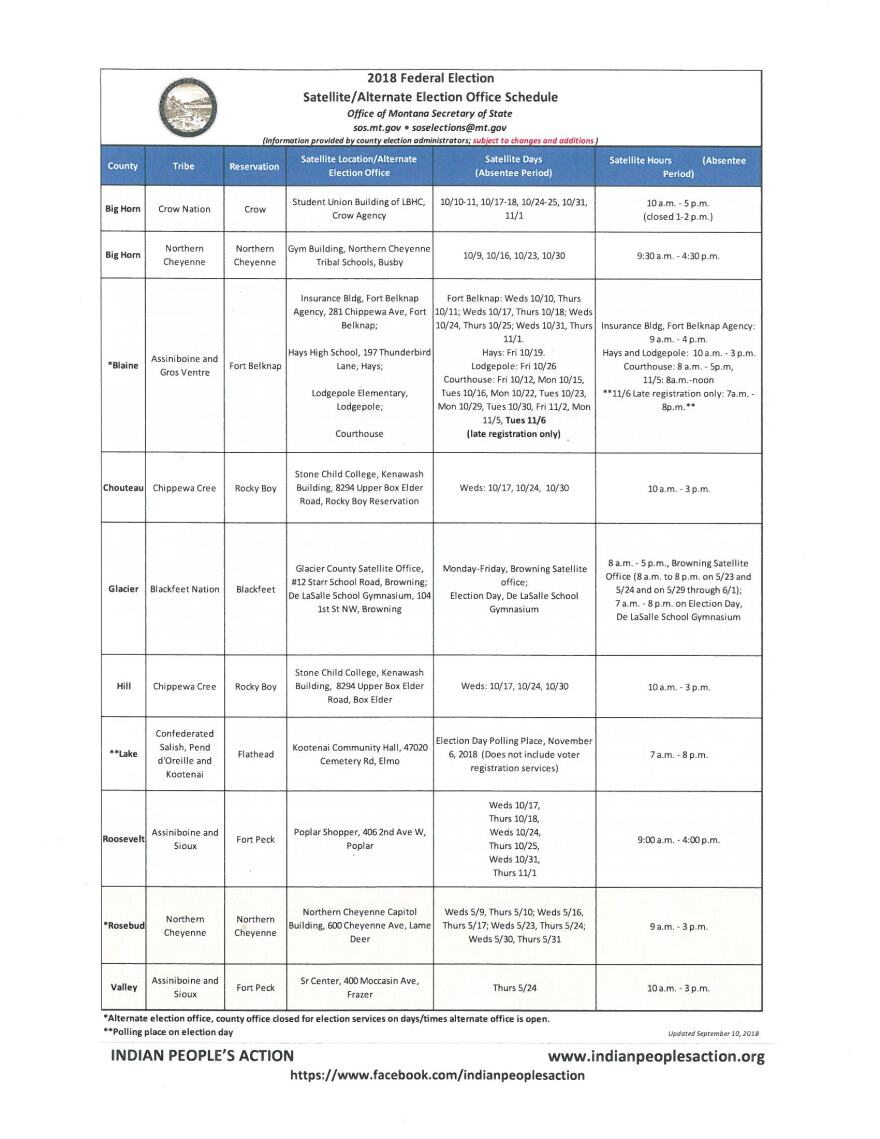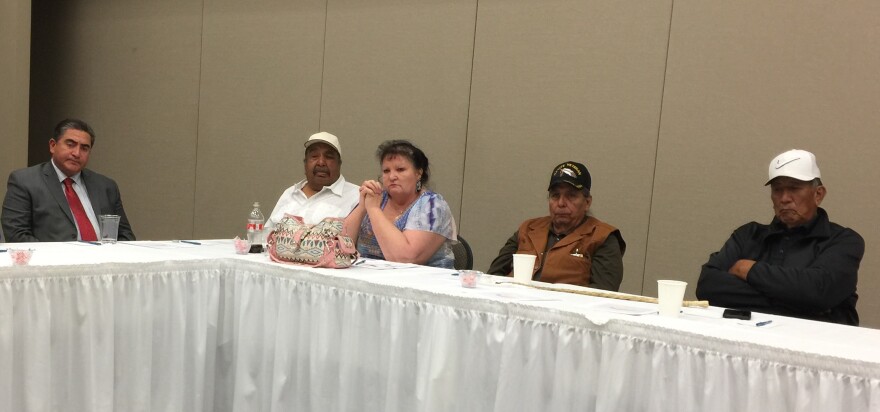Early voting started today in Montana for the mid-term elections.
Some Native American voters say the satellite election offices on the reservations will make it easier for them to exercise their right to vote.
Those are the result of a skirmish first with local elected officials in Big Horn County that eventually spread and wound up in federal court.
The lawsuit basically said reservation residents face greater hardships than others when it comes to voter registration and voting – in part - because of the long travel distances they face.
“I’m from the smallest, most isolated community on the Northern Cheyenne Reservation. We don’t even have no store or nothing,” said Mark Wandering Medicine of Birney, the lawsuit’s lead plaintiff. “And we had to travel all the way to Forsyth.”
For him the trip is nearly 90 miles to register to vote or to vote during the early voting period.
“And I know that most of my village people that were there, they have a hard time with transportation and a lot of times they didn’t get to vote,” he said.
Wandering Medicine said that’s why giving them some flexibility during those 30 days in advance of Election Day to cast their ballot is so important. He said that way if there’s inclement weather, transportation or other issues, it’s easier for Native American voter to get to a satellite election office on their reservation instead of having to travel all the way to the county seat.

The satellite offices are the result of a settlement reached in 2014 with then-Montana Secretary of State Linda McCulloch. She ordered counties to provide those locations to ensure compliance with the federal Voting Rights Act and ensure Native Americans can effectively participate in the electoral process.
But it’s still a point of wrangling with local elections officials said Andy Werk, Jr., president of the Ft. Belknap tribes. He said there are still disagreements over which days and for what hours those satellite offices will be open.
Still, Werk said it’s a fight worth fighting.
“And what I see in Ft. Belknap - and I’d like to say, I see it throughout the country - it’s an age of empowerment for Indian people. And you see change,” said Werk.
Werk said his community will celebrate today’s start of early voting with a kick-off at Fort Belknap Agency’s satellite office.
“So, Indian People need to vote because their vote counts,” he said. “This is a very crucial election and we’re going to make sure we do our part up there in Fort Belknap to take advantage of the efforts of Mark (Wandering Medicine) and the other plaintiffs that were involved in this.”
Some of the plaintiffs and others gathered in Billings last night to celebrate their victory at the invitation of Indian People’s Action.
State Representative Sharon Stewart Peregoy of Crow Agency said it’s been an uphill battle.
“Indian vote is to be reckoned with,” she said and it’s an issue that needs to be taken seriously.
Many of the congressional candidates court the Native American vote knowing it could be a factor in the outcome.
Politico reported back in 2006 that the Native vote was considered key to then-Democratic challenger Jon Tester who successfully unseated Republican U.S. Senator Conrad Burns.
“We are a block vote. We are a swing vote and we need to take that seriously,” said Stewart Peregoy.
She said the Native vote could be a factor again in this year’s election, “We need to understand that we need to educate our young people. That in order to affect change, we have to make that change ourselves.”


